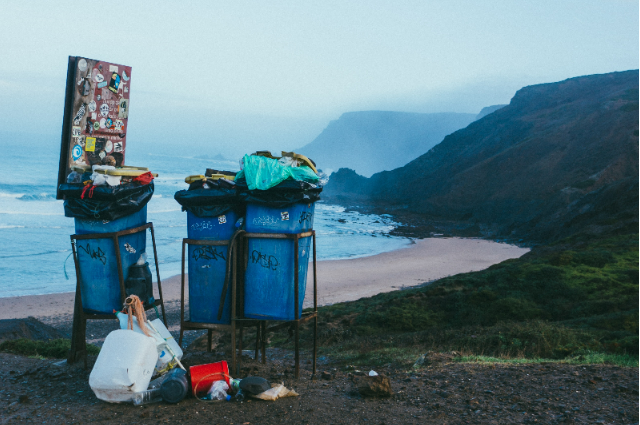
Photo by Tobias Tullius on Unsplash
Imagine what will happen if we keep on dumping our waste into landfills and dumping yards? It will start to pile up and more and more areas will be converted into dumping sites and there will be very less area for human and animal settlements. Also, the accumulation of waste could lead to many problems such as the spread of disease, habitat loss, and even ecosystem imbalance.
In order to avoid these problems, we need to manage our waste in a proper manner. By applying the right strategies and right techniques we can come up with the solution to manage this waste in a resourceful manner. The unwanted discarded things which we consider as waste is no longer waste. In fact, it is still of very use to us in many ways. It can be used as a ‘Resource’ which is so-called as ‘Waste’ by us, by using the right technique and applying the correct strategies i.e by following the 3R i.e., Reduce, Reuse, and Recycle the waste, we can achieve to manage this waste in a rightful manner.
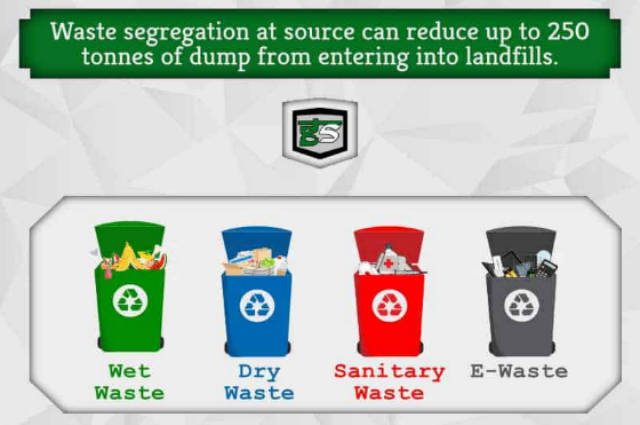
Image sources: https://greensutra.in
The first and foremost step is the Segregation of waste. The management of waste should start from our houses and also at workplaces, schools, hotels, hospitals, etc. The waste should be disposed of by segregating it into most basic methods as Dry waste, Wet waste, E-waste, and Sanitary waste further the hospital can be segregate the waste as the Biomedical waste. After the segregation of waste, it becomes easier to manage the ‘Resource’ present in the waste.
In this article, we will see how we can manage these resources present in the waste in a rightful manner and can earn a huge profit with little investment. We will also see some real-life examples where the people who have actually taken the initiative to manage this ' Resource’ by converting it into something useful material preventing that waste from going into landfills which can sustain the environment to a large extent. The measure to manage and reduce the waste is as follows:
1. Recycling and Upcycling of the waste:
A) Temple waste: In the temple, the devotee offers garlands and flowers to their deities. After that a huge floral waste is collected and is usually dumped into the river or any water body, which is absolutely a wrong practice. Instead, this floral waste can be used to make Incense sticks, natural dyes, and perfumes.
1. There is a company named Mysore Deep Perfumery House makes this flower waste into incense sticks and has generated employment for many women.
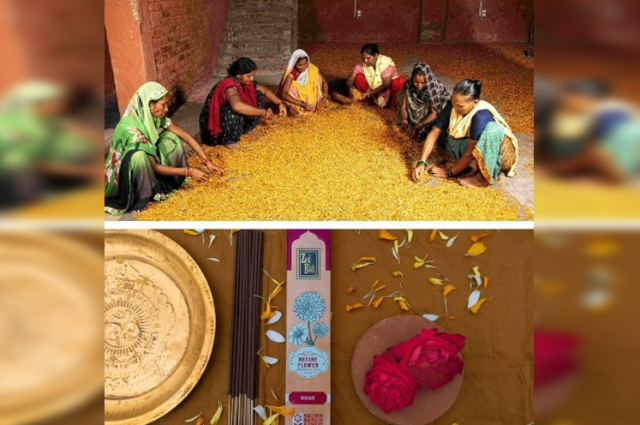
Image and information credit: https://thelogicalindian.com
B) Plastic Waste: There are several plastic wrappers, plastic bottles, or any material made of plastic that is generated as waste and can be again used in many ways. It be made into useful materials by recycling and upcycling it or it can be again made back into fuel as the plastic is the byproduct formed in petroleum processing.
2. There are 4 friends from Maharashtra who have taken the initiative to use this plastic waste for making nice durable furniture such as tables, chairs, benches, etc, and the company named Econiture.
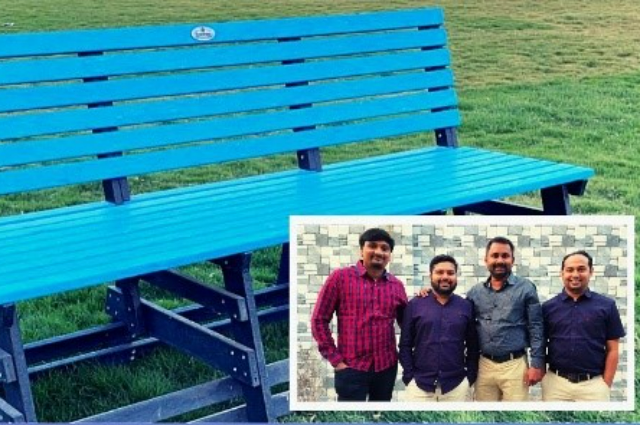
Image and information credit: https://thelogicalindian.com
3. There is an IT Engineer Amita Despande from Pune who upcycle the waste plastic wrappers into nice trendy fashionable bags, purse, mats, etc using Charkha and providing employment to several women.
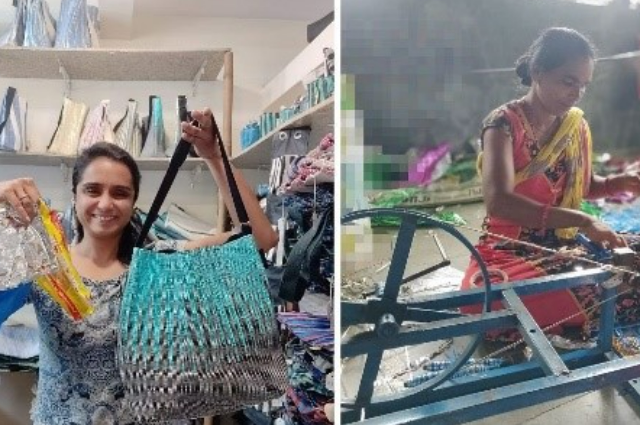
Image and information credit: https://www.thebetterindia.com
4. A couple From Maharashtra made fuel from plastic waste: https://www.youtube.com/watch?v=Bw9IL9nH6Lk
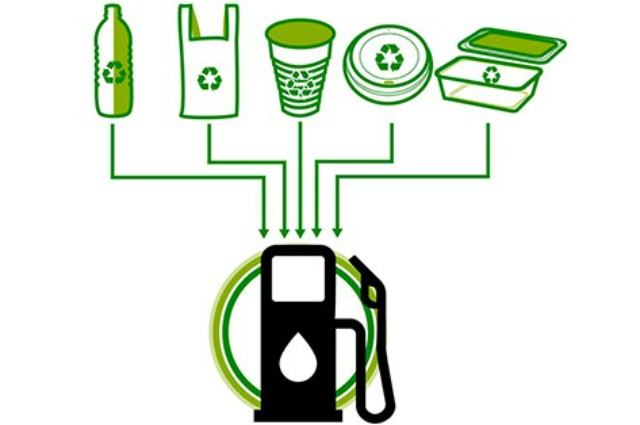
Image credit: https://www.plastivision.org
C) Fallen dried leaves waste: There are so many fallen dried leaves from trees scattered in the ground of society or gardens. Usually, these fallen dried leaves are swept by sweepers and collected in one place and burned which led to air pollution. Instead, these dried leaves can be used as browns or carbon sources in the compost can be mixed with greens i.e., kitchen waste which is the nitrogen source in making compost.
The problem of dried leaves burning in the open air was noticed by one woman in Pune and she came up with a solution and took the initiative and managed this waste by composting it.
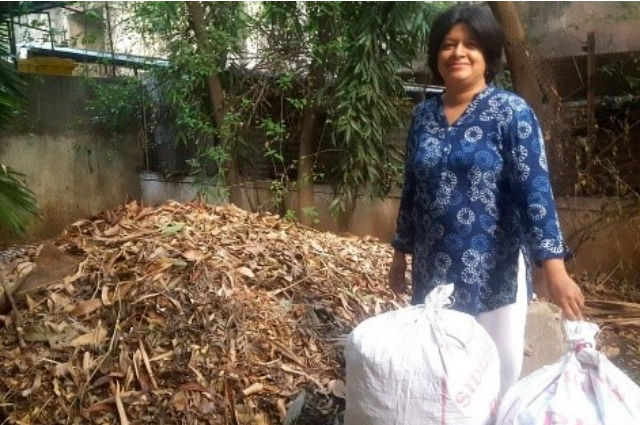
Image and information credit: https://www.thebetterindia.com
D) Composting of kitchen waste: The segregated wet waste which is produced from kitchens and hotels should undergo composting instead of disposing off in landfills or dumping sites. The composting can be done by using by method of vermicompost or by action of microbes. This low-cost business can be done to reduce, reuse and recycle the waste into nutrient-rich organic fertilizer for the plants.
2. Reduce and Reuse the Waste:
In order to manage the waste, we must first reduce and reuse the generation of waste that we can achieve by avoiding the use of more and more plastic as possible.
- If we are going to buy household stuff or vegetables we must carry our own bag with us, and avoid asking for polythene bags to the shopkeeper.
- Use Soap and shampoo bars for bathing and hair washing instead of shampoo and body wash which comes in plastic bottles, by this we can reduce plastic bottle waste by avoiding the usage of plastic bottles.
- Many floor cleaners, dish wash, and bathroom cleaner products come in plastic bottles this can be avoided by using the Water-Soluble Capsule made by the Ecosys company. In this, we can reuse the plastic container and reduce the generation of plastic waste as this water-soluble capsule can dissolve in water and can be used as a disinfectant floor cleaner, bathroom cleaning, etc.
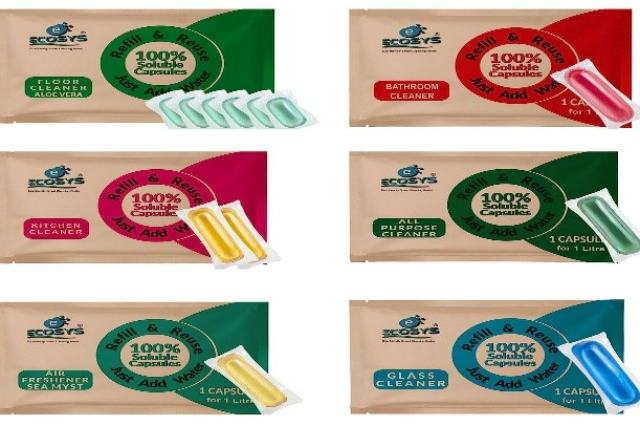
Image credits: https://www.amazon.in
3. Avoid Chemical Based Products:
There are several chemical-based products such as detergents, disinfectants, bathing soap, shampoos, dish wash, etc. which when used are disposed of as sewage waste which pollutes the water body and harm several aquatic lives and can enter into the food chain. Instead, there are several natural-based organic products available we should opt to use which not only good for our well-being but also can prevent harmful chemicals which will be released in the water causing pollution.
- Natural products usage such as organic soaps and shampoos are available or we can use Gram flour (Besan) for bathing, and shampoo made from shikakai, reetha, and amla for hair wash.
- For face cleansing, we can use home made facemasks made of readily available ingredients in our kitchen or present in nature such as Neem, aloe vera, turmeric, etc.

Image credit: https://fabbon.com

Image by https://greenshinesouq.com
For floor cleaning, kitchen platform cleaning, fertilizing the plant, or using pesticides for plants we can use Bioenzymes, which can be obtained by fermenting citrus fruit peels can be utilized for the above purpose.
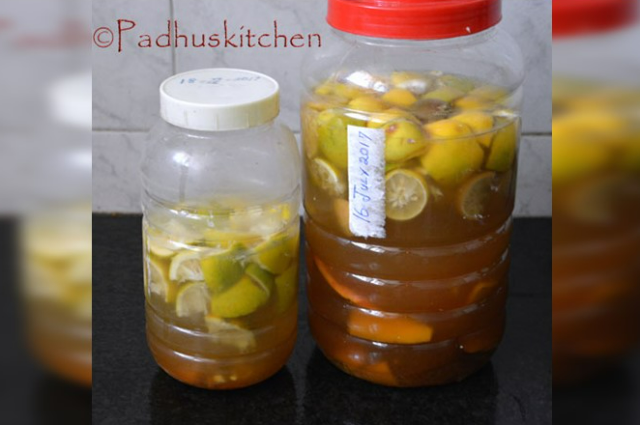
Image credit: https://www.padhuskitchen.com
4. Waste from toilets should be used in Biogas plants:
The fecal waste flushed out of the toilet should be collected Biogas plant. In which, due to the action of microbes, waste is converted into slurry, and gases produced in the process can be utilized as fuel for cooking purposes, in CNG vehicles, etc. which can be cost-effective and waste will also be managed in the right way.
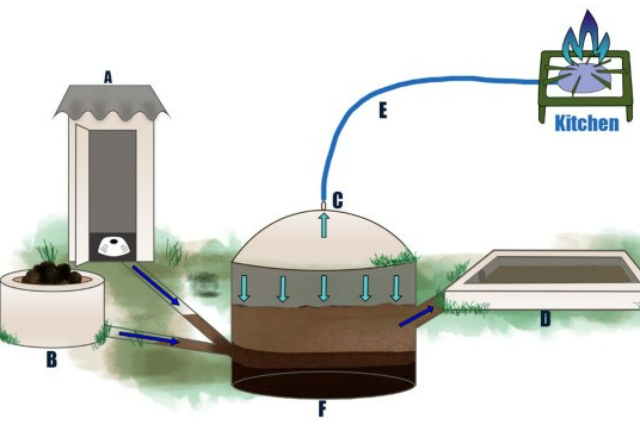
Image credit: https://www.sciencedirect.com
Our country’s road and transport minister Nitin Gadkari has initiated in Nagpur, the use of the city’s toilet water for the production of fuel, and several CNG buses were run with that fuel in the Nagpur city.
So, above was the waste generation problem and the solution to overcome that problem by utilizing the waste in a resourceful manner by following the Strategies such as methods to Reduce, Reuse, Recycle, and Upcycle the waste and by avoiding several chemical-based products in order to enhance the Sustainability of the Environment. Therefore, Government and several Entrepreneurs can take up the initiatives to solve the waste generation problems leading to environmental pollution and come up with the above-mentioned solution or some other new technique for the Management of Waste and Use Waste as a Resource for earning a good profit.
